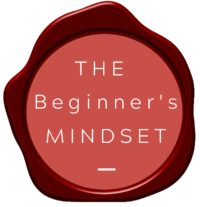
My room is a mess.
I hate the way it looks.
I need to clean it.
Every time I get to the room to clean it, seeing how large the mess is, I just can’t get myself to start cleaning it. I just kick the stone to the next day and every time I do that, the inertia seems to grow and I never manage to get the room cleared up.
What is true of the room, is also true of other tasks like folding washed clothes and placing them in the wardrobe or getting started on the blog that I have always been meaning to publish.
After certain amount of delay, my skin thickens and I tend to accept the state as it is knowing fully well that it is going to bite me in the future and I tend to intellectualise it by saying that am not motivated enough.
I guess most of us have all been there.
My professional career spans over a decade as I write this. In my 10+ years, I feel blessed to be able to say that I have been largely happy. However, days of exuberant inspiration and motivation have been far and few.
If I were to rely on motivation alone to get work done, how would I get anything done on other “normal” days?
Imagine the creatives like authors and creators – assuming they shared my frequency around the number of days of emotional motivation, how would they churn out their masterpieces and best sellers?
The message that am trying to drive out here, if it isn’t clear already is that motivation is highly overrated. In order to get any result, what you need is action and if we continue to rely on motivation to produce action, the outcome of any endeavour would be under serious risk.
If that is indeed the case, what should one rely on to break the inertia and get started?
Well, the answer is thankfully, in the question itself. “GET STARTED”.
Some time back, I came across Mark Manson’s first book titled, “The subtle art…” and there is a chapter in the book that deals with tackling this very predicament. He calls it the ‘Do something principle’.
What we often believe is that inspiration leads to motivation and motivation in turn leads to desirable action. In other words, motivation is needed to get something done.
Something like this:

He then goes on to break this misconception and redefines the above three as a cyclical concept as against a straight line.

Think of the above as a train route which is cyclical; a shuttle loop if I may. And imagine the three stimuli (Inspiration, Motivation and Action) as stations on that route. The train is looping through them. If this were not a loop, you would have to get on to the train on the Inspiration station and if you do, you would reach Motivation and finally Action. However, the trouble is that getting onto the Inspiration station is not seen to be in our hands. Thankfully, this is a shuttle. So, if you get onto the Action station, you would then set the snowball rolling. The next station would be Inspiration and that would lead to Motivation and then Action again. And the cycle continues…
So, how can we implement the above principle? Let’s say you have been procrastinating doing a task, let’s say cleaning your room. The more you delay, the more daunting it gets and harder to get started. You then convince yourself that you aren’t motivated enough. Now, rather than waiting for the motivation to strike, start “doing something”. Give yourself 5 minutes and promise yourself to start cleaning your room for those 5 minutes. May be just begin by cleaning the shelf that appears easiest to clean; the lowest hanging fruit. That way you have boarded the above shuttle at the action station. When you get done with cleaning the shelf, you will feel tremendously relieved as you would have begun and you would see the result; however small it might be. That would then lead to inspiration and you would then feel motivated to clean shelf number two and you are already enjoying the journey on the shuttle train and you may struggle to stop. In fact, whenever I have implemented this, I have not even realised when I get done with the first task and move on to the next.
One can benefit immensely from extrapolating this principle to goal-setting. Most of the time, our goals are outcome or result oriented. I will loose 10 kgs in the calendar year, I will build a six pack, I will start a blog, etc. Knowing now how the whole cycle of emotional inspiration -> motivation -> desired action works, which then leads to the desired result, rather than setting the outcome as the goal, it could prove quite smart to set desired action as the goal instead.
Some action oriented goals could be like:
I will work out on Monday, Wednesday and Friday every week starting the next Monday and setting the time for it.
I will decide (and block out) 30 minutes every day to writing my blog. I will also publish a blog post every month (to start with).
If you just focus on the action like so, the result would be consistency and before you know it, you would be able to achieve the desired outcome without feeling the burden of the achievement because it would be easy to start and we know now that great things can happen once you do.
I wished to start my side hustle and starting a personal blog was my goal for some time now. This year, I decided to dedicate 30 minutes everyday to writing a blog (and publishing one blog post ever week). That way, after 3 hours of writing in a week, I have a bunch of draft pages written down. On the seventh day, I work on editing one of the draft blogs and publish it every Thursday. This has just lead to the consistency of effort and I have managed to achieve more on the blog front this year than I did in the two years leading to this through which I was dragging my feet waiting for inspiration and motivation and with every delay the end goal appeared larger and the starting began to feel even more daunting.
So the next time you feel daunted by a task and have cold feet, just start.
Start with something small.
Something token. A low hanging fruit and witness the snowball grow in size.


